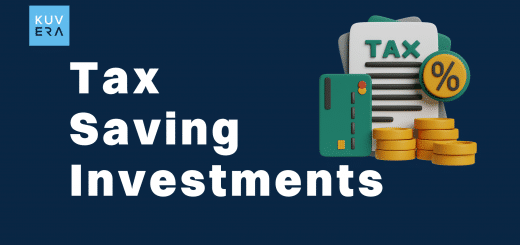There’s been a lot of talk about tax havens in recent years. But what exactly are they? Simply put, tax havens are countries or regions that offer very low or zero tax rates to foreign individuals and businesses. These places attract people and companies looking to minimise their tax obligations legally.
What Are Tax Havens?
Tax havens play a significant role in the global economy. They allow wealthy individuals and large corporations to save money by reducing their tax bills. This strategy is legal, though often controversial because it can lead to tax evasion and reduced tax revenues for other countries.
How Do Tax Havens Work?
Tax havens impose minimal taxes on income, capital gains and other revenues, thus attracting foreign capital. They provide financial secrecy, making it difficult to identify the beneficiaries and sources of income. This secrecy is often what makes tax havens so attractive to those looking to minimise their tax burden.
Start investing in Index Funds.
Top Tax Haven Countries
There are many tax havens worldwide. Here are some of the top tax haven countries:
1. The Cayman Islands
The Cayman Islands is one of the most well-known tax havens. It offers no corporate taxes, making it a popular choice for businesses and wealthy individuals looking to avoid high taxes.
2. Bermuda
Bermuda has no income tax, which makes it highly attractive to investors and companies. It aims to build a strong emphasis on confidentiality.
3. Switzerland
Switzerland is famous for its banking secrecy and low tax rates. It attracts many Europeans and clients from around the world who seek financial privacy.
4. Singapore
Singapore offers low corporate taxes and is a thriving economic hub. Its favourable tax policies make it a top destination for businesses and investors.
5. Luxembourg
Luxembourg is a financial powerhouse known for its favourable tax treatments and discreet banking sector, making it a preferred tax haven for many multinational companies (MNCs).
6. The Bahamas
The Bahamas imposes no taxes on income, capital gains or corporate earnings, making it a paradise for big corporations and high net-worth individuals (HNIs).
7. The Netherlands
While not completely tax-free, the Netherlands offers attractive tax incentives and lower tax rates compared to many other European countries.
8. Isle of Man
Situated between Great Britain and Ireland, the Isle of Man has no capital gains or inheritance taxes, making it a haven for investors.
9. Mauritius
Mauritius offers favourable tax laws, especially for businesses headquartered in the US and Europe, despite having a corporate tax rate.
10. Malta
Malta has the lowest tax burden among European Union (EU) members, attracting businesses with its favourable tax environment.
Advantages Of Tax Havens
Tax havens offer several benefits, including:
1. Tax Savings
One of the primary advantages of tax havens is the potential for substantial tax savings. By shifting profits or assets to tax havens i.e., outside the jurisdiction of one’s own country. You can benefit from low or zero tax rates on income, capital gains and inheritance. This can lead to considerable reductions in your overall tax burden, allowing you to retain more of your earnings.
2. Financial Privacy
Tax havens are known for their strict confidentiality laws. These laws protect the identity of account holders and the details of their transactions. This high level of financial privacy can be appealing to you, if you prefer to keep their financial affairs private for various reasons, including personal security and protection from lawsuits or creditors.
3. Asset Protection
Many tax havens offer asset protection laws. These laws can shield assets from creditors, legal disputes and claims from foreign governments. This makes tax havens an attractive option for you to protect your wealth from potential legal threats.
Create wealth with ₹500.
4. Economic And Political Stability
Many tax havens offer a stable political and economic environment. This stability can be to store your assets safely away from political turmoil or economic instability in your home country. It provides a sense of security and predictability for long-term financial planning.
Disadvantages of Tax Havens
Despite their benefits, tax havens also have drawbacks:
1. Illegal Activities
The secrecy and lack of transparency associated with tax havens can sometimes promote illegal activities such as money laundering and fraud. While many uses of tax havens are legal, the potential for abuse still exists. Governments and international organisations are continuously working to address these issues of tax havens.
2. Reputation Risks
Using tax havens can attract scrutiny from tax authorities and regulatory bodies. Governments around the world are increasingly cracking down on tax evasion and aggressive tax avoidance. Additionally, being associated with a tax haven can harm an individual’s or company’s reputation, as it may be perceived as an attempt to evade taxes.
3. Increased Scrutiny
International efforts to combat tax evasion and avoidance have led to increased scrutiny and regulation of tax havens. Initiatives such as the Base Erosion and Profit Shifting (BEPS) project and the Common Reporting Standard (CRS) aim to increase transparency and information sharing between countries. These measures can reduce the attractiveness of tax havens and increase compliance costs.
Wrapping Up
Tax havens offer tax savings, financial privacy and asset protection. However, the advantages of tax havens come with certain limitations as well. The secrecy they offer can facilitate illegal activities like money laundering and tax evasion. Hence, understanding the balance between the benefits and risks of tax havens is essential.
FAQs
What is a Tax Haven?
A tax haven is a country or region that offers low or zero tax rates to foreign individuals and businesses, providing financial secrecy and favourable tax laws.
Are Tax Havens legal?
Yes, tax havens are legal. However, they often attract scrutiny due to their potential for facilitating tax evasion and money laundering.
What are the top Tax Havens in the world?
Some of the top tax havens include the Cayman Islands, Bermuda, Switzerland, Singapore and Luxembourg, among others.
Why do people use Tax Havens?
People use tax havens to reduce their tax liabilities, protect their assets and benefit from financial privacy and stability.
What are the risks of using Tax Havens?
The risks include legal challenges, reputational damage and increased scrutiny from tax authorities and regulatory bodies.
Interested in how we think about the markets?
Read more: Zen And The Art Of Investing
Watch here: Investing In Passive Funds
Start investing through a platform that brings goal planning and investing to your fingertips. Visit kuvera.in to discover Direct Plans of Mutual Funds and Fixed Deposits and start investing today.
AREVUK Advisory Services Pvt Ltd | SEBI Registration No. INA200005166
DISCLAIMER: Mutual Fund investments are subject to market risks. Read all scheme related documents carefully. Registration granted by SEBI, membership of BASL (in case of IAs) and certification from NISM in no way guarantee performance of the intermediary or provide any assurance of returns to investors. Investments in securities market are subject to market risks. Read all the related documents carefully before investing. The securities quoted are for illustration only and are not recommendatory.












